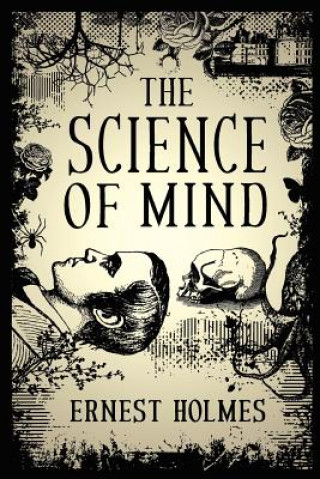
Kod: 12483120
The Science of Mind
Autor Ernest Holmes
The Science of Mind is Ernest Holmes's Magnum Opus. The book was updated and revised over the years and this edition was originally published in 1926. In 1918, Holmes wrote in the introduction, "This little book is an attempt t ... więcej
- Język:
 Angielski
Angielski - Oprawa: Miękka
- Liczba stron: 370
Wydawca: White Crow Books, 2012
- Więcej informacji o książce

92.15 zł
Dostępność:
50 % szansa Otrzymaliśmy informację, że książka może być ponownie dostępna. Na podstawie państwa zamówienia, postaramy się książkę sprowadzić w terminie do 6 tygodni. Gwarancja pełnego zwrotu pieniędzy, jeśli książka nie zostanie zabezpieczona.
Otrzymaliśmy informację, że książka może być ponownie dostępna. Na podstawie państwa zamówienia, postaramy się książkę sprowadzić w terminie do 6 tygodni. Gwarancja pełnego zwrotu pieniędzy, jeśli książka nie zostanie zabezpieczona.Przeszukamy cały świat
Zobacz książki o podobnej tematyce
-

Return to Circa '96
198.84 zł -
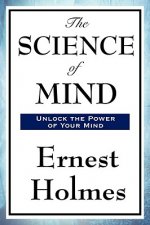
Science of Mind
66.92 zł -
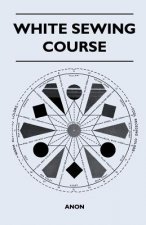
White Sewing Course
132.24 zł -
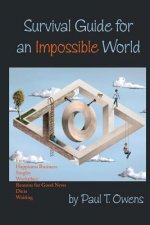
Survival Guide for an Impossible World
55.16 zł -4 % -

Nori
128.22 zł -

Jackie Robinson
61.09 zł -

Beyond Knit and Purl
132.04 zł
Bon podarunkowy: Radość gwarantowana
- Podaruj bon o dowolnej wartości, a my się zajmiemy resztą.
- Bon podarunkowy dotyczy całej naszej oferty.
- Możesz wydrukować elektroniczny bon z e-maila a następnie przekazać go obdarowanemu.
- Ważność bonu wynosi 12 miesięcy od daty wystawienia.
Powiadomienie o dostępności
Wpisz swój adres e-mail, aby otrzymać od nas powiadomienie,
gdy książka będzie dostępna. Proste, prawda?
Więcej informacji o The Science of Mind
Za ten zakup dostaniesz 54 punkty
 Opis
Opis
The Science of Mind is Ernest Holmes's Magnum Opus. The book was updated and revised over the years and this edition was originally published in 1926. In 1918, Holmes wrote in the introduction, "This little book is an attempt to explain what each soul must discover for himself, that he stands in the midst of an eternal creative power which presses itself around his own thought, and casts back to him glorified all that he thinks." Later in the book he goes on to say, "The Science of Mind is based entirely upon the supposition that we are surrounded by a Universal Mind into which we think; this Mind, in Its original state, fills all space with Its Presence. Since it fills all space, it fills the space that man uses in the Universe. It is in man as well as outside of him. As he thinks into this Universal Mind he sets in motion a Law which is creative, and which contains within itself a limitless possibility." Holmes was influenced by the writings of Christian Larson, Phineas Quimby, Thomas Troward, Ralph Waldo Emerson, and Mary Baker Eddy, and he formed part of what was known as the New Thought Movement. The catalyst of what became 'New Thought' seems to been Phineas Quimby, a New England, Hypnotist, Philosopher, and Healer, who inspired amongst others, Mary Baker Eddy, (a patient of Quimby's) to form the Christian Science Movement. New Thought posits that everything is mind (the mind of God) and that we all have equal access to God by accessing mind. This is done by prayer or more specifically, 'Affirmative Prayer' or 'scientific prayer'. Affirmative prayer focuses on a positive rather than a negative situation. For example, a person who is sick would focus on being in a state of good health as if he or she were already in good health. Another analogy might be if someone was trying to lose weight and was praying for help, they wouldn't say, " I want to lose weight" as that would imply they were over-weight; they might say "I have lost weight" or "I'm losing weight" in an attempt to 'think ones-self thin.' The notion is that 'Mind is the Builder' an idea also frequently posited by the Famous American psychic, Edgar Cayce - the idea that our minds and the universal mind, influence our bodies and therefore we have the ability to heal ourselves or cause our own disease. "We are what we think." William James called affirmative prayer a "mind-cure"; he described it as America's "only decidedly original contribution to the systemic philosophy of life." On the brain, Holmes had this to say; "No, the brain of itself could not think; and yet, without a brain man could not think; which simply means that man needs a brain while here, but that the brain, of itself, does not think. The brain does not think and yet man thinks; so behind the brain there must be a thinker." He reasoned; "Instinctive Man within me is perfect and yet I appear to be imperfect. My apparent imperfection must be the result of an imperfect thinking; in reality I am, and always have been, perfect. I will now begin to think differently about myself and see what happens." Many of today's self help theories such as the law of attraction, positive thinking, and books like the runaway bestseller, The Secret, owe much to the New Thought Movement of yesteryear and books such as The Science of Mind are required reading for anyone interested in spiritual literature and the nature of reality.
 Szczegóły książki
Szczegóły książki
92.15 zł
- Pełny tytuł: The Science of Mind
- Autor: Ernest Holmes
- Język:
 Angielski
Angielski - Oprawa: Miękka
- Liczba stron: 370
- EAN: 9781908733108
- ISBN: 1908733101
- ID: 12483120
- Wydawca: White Crow Books
- Waga: 543 g
- Wymiary: 229 × 152 × 21 mm
- Data wydania: 23. January 2012
Ulubione w innej kategorii
-

Dune
50.34 zł -3 % -

Haunting Adeline
125.51 zł -1 % -

Berserk Deluxe Volume 2
212.74 zł -1 % -

White Nights
10.94 zł -28 % -

Powerless
48.63 zł -11 % -

Atomic Habits
57.37 zł -28 % -

Dune Messiah
46.22 zł -3 % -

Berserk Deluxe Volume 3
217.87 zł -3 % -

One Day
34.26 zł -44 % -

Berserk Deluxe Volume 1
211.33 zł -2 % -

Iron Flame
60.99 zł -28 % -

Surrounded by Idiots
36.67 zł -28 % -

Harry Potter and the Prisoner of Azkaban (Minalima Edition)
170.03 zł -2 % -

Gravity Falls Journal 3
89.03 zł -

Heaven Official's Blessing: Tian Guan Ci Fu (Novel) Vol. 1
89.43 zł -

The Creative Act
102.70 zł -12 % -

Dune
47.22 zł -23 % -

Hunting Adeline
126.01 zł -4 % -

A Little Life
48.63 zł -11 % -

Children of Dune
46.62 zł -2 % -

Heaven Official's Blessing: Tian Guan Ci Fu (Novel) Vol. 2
77.57 zł -14 % -

Bungo Stray Dogs, Vol. 8 (light novel)
65.41 zł -4 % -

Percy Jackson and the Olympians 5 Book Paperback Boxed Set
126.72 zł -34 % -

Solo Leveling, Vol. 1
86.52 zł -3 % -

The Prisoner's Throne
44.81 zł -12 % -

Court of Thorns and Roses
33.86 zł -31 % -

Cry Baby Coloring Book
47.22 zł -1 % -
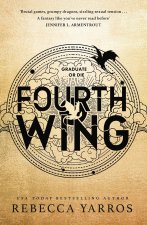
Fourth Wing
71.75 zł -15 % -

Icebreaker
37.48 zł -21 % -

Berserk Deluxe Volume 6
217.87 zł -3 % -

Avatar, the Last Airbender: The Kyoshi Novels (Box Set)
165.81 zł -4 % -

The 48 Laws of Power
98.28 zł -14 % -

House of Leaves
123.80 zł -3 % -

Twisted Lies
36.67 zł -28 % -
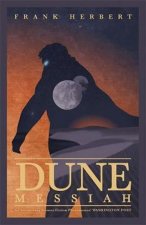
Dune Messiah
49.53 zł -13 % -

No Longer Human
56.37 zł -8 % -

48 Laws Of Power
60.99 zł -28 % -

Twisted Games
35.06 zł -31 % -

Caraval Paperback Boxed Set
175.15 zł -3 % -

Solo Leveling, Vol. 2
74.86 zł -23 % -
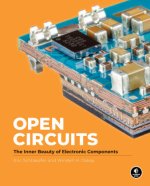
Open Circuits
169.03 zł -2 % -

Berserk Deluxe Volume 5
223.80 zł -

Heaven Official's Blessing: Tian Guan Ci Fu (Novel) Vol. 3
78.08 zł -13 % -

Berserk Deluxe Volume 4
208.42 zł -3 % -

Court of Mist and Fury
33.86 zł -31 % -

SOLO LEVELING V08
88.23 zł -1 % -

English File Upper Intermediate Multipack A (4th)
92.85 zł -1 % -

CHAINSAW MAN V14
43.51 zł -21 % -

Before the Coffee Gets Cold
31.55 zł -31 %
zadowolonych klientów
Od roku 2008 obsłużyliśmy wielu miłośników książek, ale dla nas każdy był tym wyjątkowym.
Copyright! ©2008-24 libristo.pl Wszelkie prawa zastrzeżonePrywatnieCookies


 21 milionów książek
21 milionów książek Dostawa 10.99 zł
Dostawa 10.99 zł (32) 444 93 66 (8-15.30h)
(32) 444 93 66 (8-15.30h)